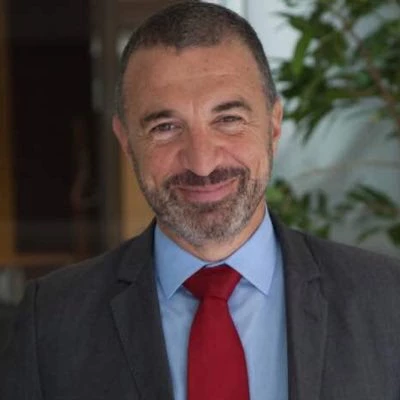 Joyce Sosongo, a 10-year old school girl in Kinshasa
Joyce Sosongo, a 10-year old school girl in Kinshasa
Time has not stood still since September 2019 when the Democratic Republic of Congo (DRC) began rolling out free primary schooling. Since then, while the world has forever changed due to the global pandemic, life went on for children like Joyce Sosongo, a plucky 2nd grader with a winning smile, interviewed back in 2020. Since we last visited Joyce, schools were closed for about 7 months due to COVID-19, but she returned to school once they re-opened and she has, she tells us, “stayed out of trouble.” She has been busy memorizing her multiplication tables and learning how to read, write and conjugate verbs. Now 10, her favorite class is math. While Joyce wanted to be a teacher to help families two years ago, she now wants to become a doctor to help them heal.
Joyce’s ongoing education is a sign that free primary schooling in the DRC is alive and well, delivering results in spite of challenges. Free primary schooling is also a lifeline for Joyce’s mother Esther, who is raising four children alone and works as a housekeeper in Kinshasa, the country’s capital.
This is not to say that free primary schooling does not have hidden costs or that there isn’t some cacophony in the reform’s social and mainstream media coverage. The topics so far have been teacher strikes, teacher salaries, and salary payments. There have been well documented hiccups: In 2020, an investigation conducted by the Inspecteur General des Finances, an anti-corruption body that reports directly to the President, revealed fraud in the education sector. It was followed by high-level arrests and prosecution.
Strengthening the education system is a major focus of the DRC Emergency Equity and System Strengthening in Education Project, an $800 million project financed by the World Bank. It seeks, for example, to make the teacher payroll complete and up-to-date, to optimize the plethora of administrative offices for education in project provinces, and to generalize the merit-based recruitment of teachers and school directors. These reforms, all of them huge in terms of implications for future generations and putting in place the foundations for a well-performing system, are still a work in progress not least because of force majeure situations of insecurity or volcanic eruptions in the East and the difficulty in identifying quality technical assistance to help government do the job. But things are moving.
What have we been able to do in the past two years then that we feel particularly proud of? Every teacher and education personnel has had to sign revised Codes of Conduct with explicit language against Sexual Exploitation Abuse and Harassment (SEA/H) in the classroom and beyond. Every primary school in 10 provinces has a female focal point and a Grievance Redressal Mechanism (GRM) committee to take in complaints. There is also a national call-center-based approach to grievance redressal called “Allo Ecole” that has so far recorded a few thousand complaints -- including complaints regarding its own personnel. To date, the government has provided psychosocial, legal and medical support for 31 cases of SEA/h in the classrooms in the project provinces. One case is a case too many and 31 is indeed unacceptable. But other cases, no doubt, are still silenced and receive no redressal. What this project has managed to do is provide a functional platform through which complaints of SEA/h and others can be heard and redressed.
And lastly, the project has managed to disburse $197 million in June 2022 – a sign of progress in five areas tracked by the project’s “disbursement-linked indicators.” Those results have been verified by a third- party monitoring agency and a solid audit of teacher salaries conducted in 10 provinces. Disbursements are not results in and of themselves, but they are hallmarks of what the government has achieved. In the 10 project provinces alone, for example, over 180,000 Codes of Conduct have been signed, and more than 36,000 primary teachers put on the public payroll. Those results, coupled with stories like that of Joyce and her family, are palpable signs of change and what DRC can achieve.



Join the Conversation